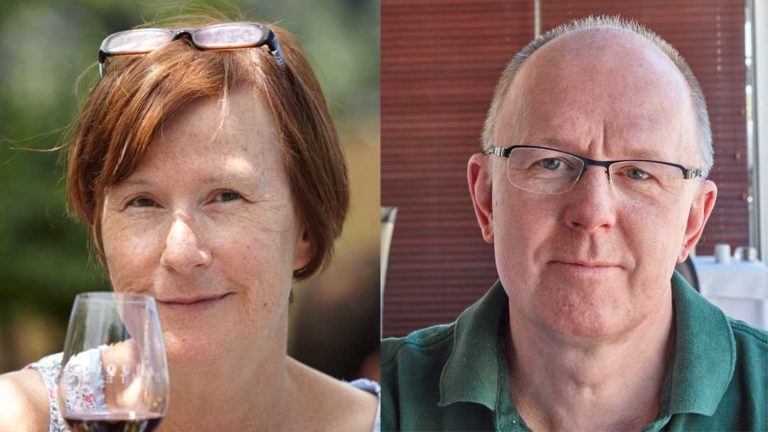

 The dangers of becoming a super-celebrity
The dangers of becoming a super-celebrity
The biggest problem with making wine is probably not to make sure the wine is good but rather to sell it.
Then it can be very helpful to be known, that one in some way has a strong “brand”.
An example, that is close at hand, as we have just returned from our New Zealand tour, is Sauvignon Blanc from New Zealand. It is one of the great success stories of recent times in the wine world. Everyone knows that New Zealand makes characterful wines from Sauvignon Blanc. Thanks to those, New Zealand is one of the countries with the highest export prices of wine, even higher than France if I remember correctly, if you exclude the expensive champagnes from the statistics.
Another example is Bordeaux. The whole world admires the great Bordeaux wines and many in other wine regions try to imitate them. “Imitation is the sincerest form of flattery” as they say.
Mendoza in Argentina has become big, not least on the US export market, thanks to its delicious malbec wines.
There is no sparkling wine that sells as much as prosecco from north-eastern Italy.
But there is always a back side.
Prosecco has expanded its area so much that one wonders if there is any origin identity left and has difficulty getting out of the budget segment. Bordeaux is known for its exclusive wines, and thus has a reputation for being unreasonably expensive, which the 90% of producers who make wines in “normal price ranges” suffer from.
But most significant it is perhaps for the new Zealand wines, which was very obvious when we were there. Yes, the world has begun to discover their pinot noir, but who knows of their pinot gris, riesling, and syrah, not to mention arneis and albarino? Very interesting wines, and very unknown. It’s probably time for New Zealand – like many others – to be cautious about far too one-dimensional celebrity status.
Wine and wine experiences are, after all, a lot about variety, isn’t it?
As I mentioned, we have just returned from our first wine tour that we have organized in New Zealand. Two weeks of exceptional wine, food and travel experiences, including boating on a glacier lake with blue ice.
Add a few additional travel days for us, this means that we have been away for the better part of the month, so writing time has been a bit limited.
That’s why you get a shorter than usual Brief this month. On the other hand, you will get more and better wine travel experiences in the future.
One special experience for us was when one of the New Zealand wine producers wanted us to sign her copy of our book on organic wine. Imagine that our book is read even in New Zealand. That felt great!
New Zealand will come back on our program in March 2020. The coming winter season (!) will also include the extraordinary wine tour to South Africa (one not to miss) in February and the wine adventure tour to Chile and Argentina in January (an equally exceptional experience).
The details of those programs are now finalized so you can see the full descriptions on our travel site bkwinetours.
Not to forget the other wine tours that we have this spring and autumn to Bordeaux and Champagne.
You can find more info below.
Britt & Per
PS: Recommend to your friends to read the Brief !
– – – – –
What’s on at BKWine Tours
2019
- Bordeaux, April 10-14, 2019
- Champagne, September 11-15, 2019
- Bordeaux, October 2-6, 2019
2020
- Chile and Argentina, January 20 – February 2, 2020
- South Africa, February 15-23, 2020
- New Zealand, March 9-24, 2020
- More to come
For more information please contact us on email or on phone (we’re on French time), or go to our wine travel site on www.bkwinetours.com!
We also make custom designed wine tours – on-demand tours for you and a group of friends, for your company (maybe to scout new winegrowers?), for a special event… We can combine winery visits and wine touring with other activities: gastronomic workshops, visit to an oyster farm, truffles hunting, cheese making, and more. More info on the custom designed and bespoke BKWine wine tours and travel here!
Read our book(s)
We have written several wine books, nine at the last count. One of them has been translated to English; the others are (so far) only available in Swedish. This is the one that is available in English: Biodynamic, Organic and Natural Winemaking, Sustainable Viticulture and Viniculture
All our books are on wine, but on different subjects: wines of the Languedoc, wine growing and wine making, the wines of France, Tuscany, Bordeaux, Piedmont, Burgundy, Champagne. Several have won prestigeous prizes and awards. Read more on our wine books.
From the World of Wine
In Brief
In short, news and stuff from the world of wine.
Phylloxera strikes in Australia
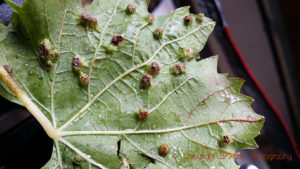 When we talk about countries with non-grafted vines, most people think of Chile, the only country in the world that is completely free from phylloxera, the small wine louse that infects the wine roots and kills the vines. But also in Australia a significant proportion of the vineyards are planted with non-grafted vines. However, the wine louse is present in the country and several outbreaks have recently been noted in e.g. Yarra Valley in Victoria. People begin to worry that perhaps the transition to grafted vines is too slow.
When we talk about countries with non-grafted vines, most people think of Chile, the only country in the world that is completely free from phylloxera, the small wine louse that infects the wine roots and kills the vines. But also in Australia a significant proportion of the vineyards are planted with non-grafted vines. However, the wine louse is present in the country and several outbreaks have recently been noted in e.g. Yarra Valley in Victoria. People begin to worry that perhaps the transition to grafted vines is too slow.
The reason why there are still so many ungrafted vines may be simply that wine producers in Australia believe that non-grafted vines provide better quality. But the economic aspects certainly also play a role. It costs a lot of money to tear up vineyards and plant new ones. There is a reluctance to pull up the old vines that Australia has become known for. But for how long will they be able to keep the little louse at bay? Read more thedrinksbusiness
How best to irrigate a vineyard
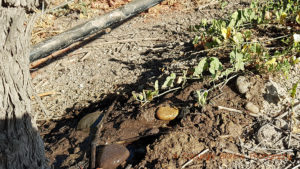 If drought is a recurring feature of the weather, then the wine growers become experts in handling it. This is the case, for example, in South Africa. Here they have learned how to optimize irrigation so that the vines get exactly what they need and not one drop more. Heinrich Schloms is a soil scientist at the South African organization VinPro and he shared his experience during the Climate Change Leadership conference in Portugal in early March.
If drought is a recurring feature of the weather, then the wine growers become experts in handling it. This is the case, for example, in South Africa. Here they have learned how to optimize irrigation so that the vines get exactly what they need and not one drop more. Heinrich Schloms is a soil scientist at the South African organization VinPro and he shared his experience during the Climate Change Leadership conference in Portugal in early March.
His main advice to his European colleagues, who are increasingly experiencing periods of severe drought, was to water less: Make sure the vines’ roots develop from the beginning. The longer they are the less irrigation is needed. Wait as long as possible to start watering. To begin early benefits the superficial roots. Never give too much water. The vine is naturally resistant to a little bit of drought and does not need much water.
We can add that the old myth that irrigation is forbidden in Europe is just that, a myth. You can also irrigate in Europe, but under strict rules and there may be local regulations that do not allow it. Read more: vitisphere.
Resistant grape varieties spark debate
The vine is in many ways a robust plant that can withstand difficult conditions and drought. But it has weaknesses. One is that it is prone to fungal diseases. No vineyard can survive without spraying. Have you heard the opposite? Don’t believe those who tell you that some wine is made without the use of pesticides. It is not true. All wine producers use some kind of pest killing sprays.
Today, everyone wants to limit the spraying as much as possible. But how? One way is to plant so-called resistant grape varieties. These are hybrids, i.e. crossings between a European (Vitis vinifera) and an American (Vitis something else) vine. The American vines have much better resistance to fungal diseases and thus using hybrids can reduce the need for spraying.
16 resistant varieties are now allowed to be planted in France. But they cannot be used for any wine. In fact, they can only be planted and used in wines without a geographical indication, i.e. in vin de france (formerly vin de table). For appellation wines (AOP) it is prohibited throughout the EU to plant and use hybrids. But discussions about a change of rules are underway. German wine producers are already violating the ban. But in France, in Bordeaux not least, some producers are very critical of the resistant grapes. They have a long way to go before they are accepted. At the same time, most wine producers agree that reducing the use of pesticides is one of the most important issues today. Here you can see which are the 16 hybrid grapes permitted in France: mon-viti
Wine tours
Some information about current and future wine tours with BKWine.
Champagne, for drinks and for dinners | wine tour
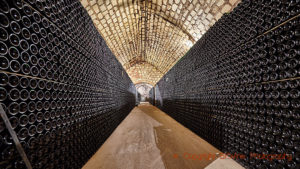 Champagne is a wine for parties and cocktails but it is also a wine to drink with food. Have you tried it? During this tour we will learn how to combine champagne with food. We will eat fabulous lunches with champagne throughout. But you will learn a lot more. The whole production process for instance. And why champagne is so special compared to other sparkling wines. Maybe the harvest has started or is just about to start, in either case it will be busy times in the vineyards. This will give you a unique opportunity to see what goes on during this hectic period.
Champagne is a wine for parties and cocktails but it is also a wine to drink with food. Have you tried it? During this tour we will learn how to combine champagne with food. We will eat fabulous lunches with champagne throughout. But you will learn a lot more. The whole production process for instance. And why champagne is so special compared to other sparkling wines. Maybe the harvest has started or is just about to start, in either case it will be busy times in the vineyards. This will give you a unique opportunity to see what goes on during this hectic period.
Read more about the Champagne wine tour, 11-15 September 2019. Book now!
Prestige chateaux and family vineyards in Bordeaux | wine tour
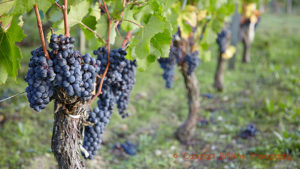 Touring Bordeaux is something a wine lover must do at least once. During the tour we will visit grand and well-known prestige chateaux, but also smaller family producers. We will have gastronomic lunches at chateaux with matching wines, sometimes older vintages. Our wine tour lunches are famous. This is a golden opportunity to discover or rediscover this classic wine region. We will stay in the city of Bordeaux, one of the most beautiful cities in France.
Touring Bordeaux is something a wine lover must do at least once. During the tour we will visit grand and well-known prestige chateaux, but also smaller family producers. We will have gastronomic lunches at chateaux with matching wines, sometimes older vintages. Our wine tour lunches are famous. This is a golden opportunity to discover or rediscover this classic wine region. We will stay in the city of Bordeaux, one of the most beautiful cities in France.
Read more about the Bordeaux wine tour 2-6 October 2019. Book now!
For those of who wants to travel far, wine tours to the southern hemisphere next winter
The long-distance wine tours for 2020 have now been published. We will do three exciting tours with wine, food, fantastic scenery, new cultures and meetings with passionate winemakers. Three very special wine tours. Each one will be a memory for life.
South America: Chile & Argentina, 20 January- 2 February
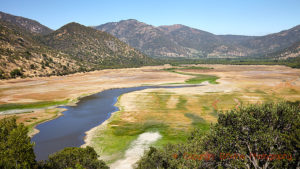 An unforgettable tour to the two largest wine producing countries in South America, Argentina and Chile. Two fabulous countries that you will definitely fall in love with. We will visit many producers, eat magnificent lunches and we will also have time for some sightseeing. A highlight is the bus trip across the Andes. The wine tour to South America.
An unforgettable tour to the two largest wine producing countries in South America, Argentina and Chile. Two fabulous countries that you will definitely fall in love with. We will visit many producers, eat magnificent lunches and we will also have time for some sightseeing. A highlight is the bus trip across the Andes. The wine tour to South America.
South Africa, February 15–23, 2020
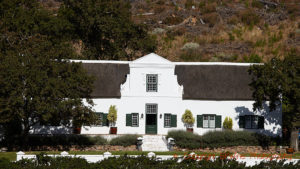 South Africa’s wine industry has developed incredibly since the mid-1990s. Passionate and ambitious producers have made this change possible. Today, the quality is top notch and it just gets more and more interesting to taste the wines and to find new favourites down here. We will also do some sightseeing such as the Cape of Good Hope and the Table Mountain with its magnificent views. Wine tour to South Africa.
South Africa’s wine industry has developed incredibly since the mid-1990s. Passionate and ambitious producers have made this change possible. Today, the quality is top notch and it just gets more and more interesting to taste the wines and to find new favourites down here. We will also do some sightseeing such as the Cape of Good Hope and the Table Mountain with its magnificent views. Wine tour to South Africa.
New Zealand, 9–24 March, 2020
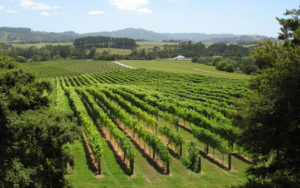 A fantastic 16-day tour that will show you a big part of New Zealand, from north to south. A true “road trip” in wine. We can promise an exciting journey that takes you from Auckland on the North Island down to Queenstown on the South Island. We will visit wine regions such as Hawke’s Bay, Wairarapa, Marlborough and Central Otago. Wine tour to New Zealand.
A fantastic 16-day tour that will show you a big part of New Zealand, from north to south. A true “road trip” in wine. We can promise an exciting journey that takes you from Auckland on the North Island down to Queenstown on the South Island. We will visit wine regions such as Hawke’s Bay, Wairarapa, Marlborough and Central Otago. Wine tour to New Zealand.
Don’t be an egoist! Share with your friends and other wine enthusiasts! Forward the Brief to your friends! Suggest that they sign up for a free subscription !
© Copyright BKWine


